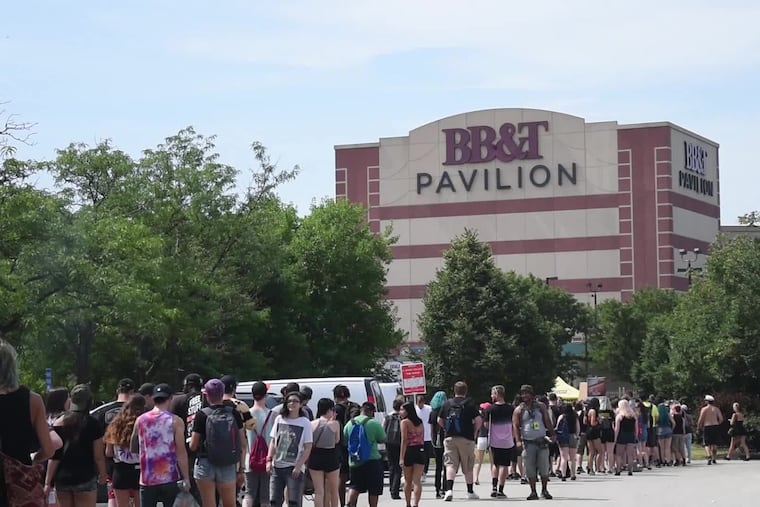Judas Priest rocked Camden — and Queen Village — with help from the weather
Deep Purple and Judas Priest had an unlikely audience for their show in Camden: living rooms a mile west, in South Philadelphia.

It was a quiet Sunday night in Queen Village, with a steady drizzle keeping people inside as they prepared for the start of the workweek.
Then suddenly, TWANNGGG!! The calm in the South Philadelphia neighborhood was shattered by hard-rocking guitar chords.
"It was nuts," said Isabel Czech, who lives on Monroe Street between Third and Fourth Streets. "We wondered, was it some of our neighbors having a wild party?"
No, it was a concert featuring Deep Purple and Judas Priest — across the Delaware River in Camden's BB&T Pavilion, a mile away.
Blame the weather, said Dan Russell, a professor of acoustics at Pennsylvania State University. The long-distance auditory effect likely resulted from a phenomenon called a temperature inversion, he said.
Sound travels faster in warmer air, and ordinarily the air is warmer near the ground, especially during the daytime. That means the speed of sound is generally faster near the ground, Russell said. So the sound waves emanating from a given source travel faster near the ground but more slowly at higher altitude — causing the waves to curl up as they radiate outward.
At night, however, the air near the ground can cool more quickly than the air above it, especially with a cooling drizzle like the one Sunday night, and the opposite occurs: faster-moving sound waves up high, and slower waves near the ground. The net effect is that sound tends to curl downward.
Throw in the fact that the wind was blowing from Camden to Philadelphia on Sunday night — likely with faster winds high above ground that would amplify the downward-curling effect — and it was the perfect auditory storm, the Penn State professor said.
"The two of those factors together would make a huge bending of the sound waves," Russell said.
A similar phenomenon sometimes happens at night on the shores of a lake, allowing campers to hear voices from the other side, he said.
Czech and other Queen Village residents said that ordinarily, they cannot hear anything from the BB&T Pavilion, but that night, it felt almost as if they had concert tickets.
"It was incredibly strange," said Emily Kaplan, a digital marketing specialist who lives near Front and Christian Streets. "I thought it was coming from two houses over. That's how loud it was."
She, Czech, and others voiced their surprise on NextDoor, a neighborhood social network, and someone soon fingered the culprit.
Kaplan said the heavy-metal bands made for an odd soundtrack, especially on the first night of Rosh Hashanah.
"Had it been slightly more calming," she said, "I probably would not have minded as much."
At least the weather was not as described by the performers. Among the songs on the Judas Priest set list: Lightning Strike.